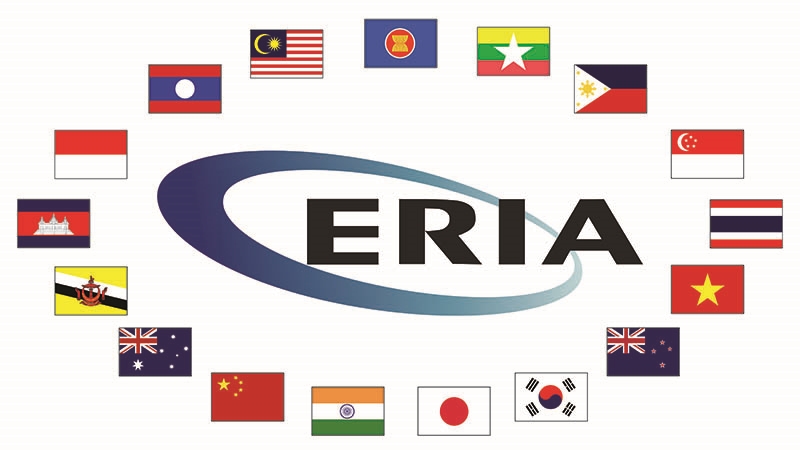Call for Proposals: Inefficient Energy Subsidies Removal Study Fiscal Year 2015
Date:
22 June 2015Category:
NewsTopics:
-Share Article:
Print Article:
Call for ERIA Study Proposals on 'Institutional Strategy and Economic Impacts by Energy Subsidy Removals in EAS Region'
1. Background and Objective of the Research:
ERIA and IEA (2013) estimate that inefficient energy subsidies totalled $51 billion in Southeast Asia in 2012. It is widely accepted that the inefficient energy subsidies encourage greater energy consumption; burden government budgets; defer investment in energy infrastructure and efficient technology; and undermine renewable energy implementation. While several ASEAN countries have taken steps to remove subsidies, a careful strategy and proper steps must be taken as removing subsidies is a politically sensitive issue.
In theory, the reduction of subsidies should encourage more energy efficient use, leading to a positive impact on international energy prices and energy security, while making renewable energy and technologies more competitive. More energy efficient use also benefits the environment and society by reducing pollution and greenhouse gas emissions. In this regard, the objectives of the study are as follows:a) The lack of public acceptance of inefficient energy subsidy removal could be a major issue for a government to implement such an energy policy. Thus, it is important to conduct studies on situation analysis, and the proper steps and ways to remove energy subsidies from countries in the EAS region.b) Implementation of reform continues to be a challenge. Therefore, it is important to study strategies and policies that offer a wise approach to respective economies for the gradual removal of energy subsidy. Thus, it will help East Asia Summit (EAS) economies to effectively develop and implement energy policies for the reduction of inefficient energy subsidies that encourage energy consumption.c) It is important to see how the impact of energy subsidy removal could potentially affect different sectors of an economy. Such analysis could be done by an input-output approach, macroeconomic approach, or any advanced techniques of Computable General Equilibrium (CGE), both on a national and regional basis.d) Some EAS countries try to remove inefficient energy subsidies in transportation, electricity, and the like. Thus, it will be important to see the short- and long-term impact of the subsidy removal on economies and livelihoods. Such analysis could also be done by using the above approach of input-output, CGE or any econometric, LEAD applications.
2. Study Method:
The above objectives could be analysed through the input-output approach, macroeconomic approach, or any advanced techniques of CGE. Or the econometric model and LEAP application could be explored as well to see the impacts of such subsidy removals.
It is important to have a thorough review of best practices in removing inefficient energy subsidies and a good analysis of context in terms of structure, policy, actions, and results.
3. Expected Policy Recommendations:
a) Recommendations on steps and approaches to implement removal of energy subsidies by gaining public acceptance. This will also include an effective response to safeguard vulnerable groups that could be affected by a policy on energy subsidy removal.b) Effective recommendations for EAS economies by understanding significant diversities among individual economies in terms of geographical settings, natural endowments, industrial structure, social background, and government organisations.c) A policy recommendation to gradually remove energy subsidies since these result in government budget deficits, losses to welfare, and environmental costs. d) Recommendations to determine the potential impact of removing energy subsidies on sectors of an economy;e) Recommendations tailored to fit the unique situation of each country, while being consistent with the theory of energy subsidy;
4. Research Project Leader and Members:
Shigeru Kimura (Working Group Leader); Han Phoumin (Sub-leader and project coordinator)
Members of the working group will be selected from the call for research proposals.
5. Submission of research proposals must include the following:
� Research question(s); � Background and value added to the literature; � Data and methodology (analytical framework) � Expected policy implications. ERIA studies are policy orientated and it is essential that the study deliver policy implications for the EAS region.
The interested researchers/academe can submit proposal together with a brief CV to the Working Group Leader and Sub-leader/Coordinator of the Project at the following emails: � Shigeru Kimura, Working Group Leader and special adviser to the President of ERIA on Energy Affairs: [email protected] � HAN Phoumin, Sub-leader/coordinator of the Working Group, and energy economist, ERIA: [email protected]
The deadline for submissions is 14 August 2015. Early submission is encouraged. The authors will be notified of the proposal selection by early October 2015.
The Working Group is expected to meet twice during the study period. Working Group members have the obligation to attend the Working Group meetings, and to participate in the discussions and provide review, comments, and discussions on other members' work.
Remuneration: ERIA will fund not less than $8,000 for each proposed study. Costs for attending WG meetings and seminars, including travelling costs and daily per diem, will also be provided by ERIA.
6. Expected Timeline:
The studies are to be finalized by June 2016.








